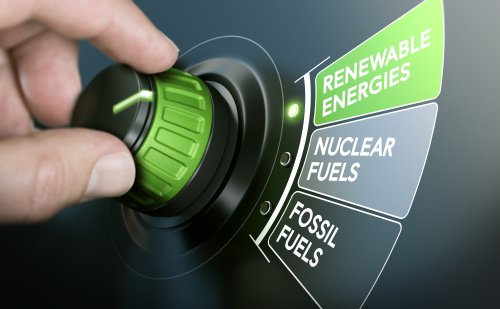Prague (Brussels Morning) The European Union announced an ambitious climate change plan to push forward its goal of becoming carbon neutral by 2050. The draft proposals, which include taxing jet fuel and progressively banning petrol and diesel-powered cars, will need to be approved by the member states and the EU parliament and could take years of negotiations. They could also face fierce opposition, both from affected industries and from eastern member states who rely heavily on coal.
Admitting the schedule set for implementing the “green transition” was tight – which translates into the “Fit for 55” goal of reducing emissions by 55% from 1990 levels – EU climate policy chief Frans Timmermans stated: “We’re going to ask a lot of our citizens. We’re also going to ask a lot of our industries, but we do it for a good cause. We do it to give humanity a fighting chance”.
In this context, much of the debate focuses on whether the burden of preparing the transition will mainly lie with national governments or with the institutions at the EU level, so as to ensure social and financial sustainability and coherence among states.
Ahead of the announcements, Vice-President of the European Investment Bank (EIB) Lilyana Pavlova and Czech Deputy Prime Minister and Minister of Industry and Trade Karel Havlicek discussed the challenges on an EU level, as well as the opportunities for the Czech Republic in the context of a twin – green and digital – transition.
Cohesion and convergence – a challenge for the EIB
During the Prague European Summit 2021, a platform for strategic dialogue about common responses to EU’s issues, Lilyana Pavlova addressed the key challenges that lie ahead for the EIB both for ensuring the EU’s role as a global player during the post-pandemic recovery and for guaranteeing convergence and cohesion among EU member states themselves.
Therefore the EIB is working on setting priorities and coordinating the market players, to build an efficient and ambitious agenda that will align with the Paris Agreement and the target of a 2050 green, carbon-neutral Europe. The public finance needs for all member States will reach an unprecedented level, as multiple sectors of the economies and industries will need to be integrated in order for the Green agenda and the digital transition to succeed.
With regards to the challenge of convergence, Pavlova maintains that cohesion among the member states is at the core of the EIB’s work. To support the goals of the green agenda, the EIB’s work is axed around three main pillars, set to invest 230bn euros in convergence-related activities.
Most of the attention will be given to priority regions eligible for financing, ie regions that are less developed and below the 75% of the EU average, so that no people and no businesses are left alone during the transition.
In order to support the de-carbonisation of energy-intensive industries, the EIB is working to address the next challenge of providing answers for the next day in a number of sectors. As most of these industries will be subject to serious review and some of them will disappear, new opportunities and making up for the losses on economic, labour and social level need to be among the central priorities of all EU institutions.
In addition, the EIB’s role will include supporting the public sector’s needs to invest in the transition and respond to the major challenge of technical facilities’ modernisation, by following a coherent economic model, viable for each and every EU state.
Avoid a “Green Iron Curtain”
Reflecting the positions and fears of fellow central and eastern European countries, Deputy PM and Trade Minister Havlicek underlined the need for a fair transition to the green deal by avoiding new lines of East-West division. While transforming the industrial sector emerges as they key priority for a successful de-carbonisation, the tight timeframe set by the EU imposes an inclusive approach to secure the sustainability of the strategies.
The Czech Republic is one of the most industrialised countries in Europe, and even before the pandemic, the government pursued policies to re-evaluate systems of transformation and digitalisation. However, at a crucial time of post-pandemic recovery, the main priority is to lead the change not only towards the transformation of a coal-oriented economy, but within a framework of sustainability and security.
The transition from coal to green energy and replacing the coal resources by gas will certainly need to include investment in all sectors, such as infrastructure and transport, in addition to the support and investment in new technologies, such as hydrogen, and Artificial Intelligence by following the German example. Clean mobility is another challenge for a “conservative, coal-oriented country”, which will need to provide support for the public and private sector investing in imports of green cars.
According to Havlicek, the biggest challenge is thus to come up with a comprehensive balancing act that invests in the country’s human capital, SMEs and supports startups and spinoffs in the direction of converging with the EU and avoiding a new, “green iron curtain”.




